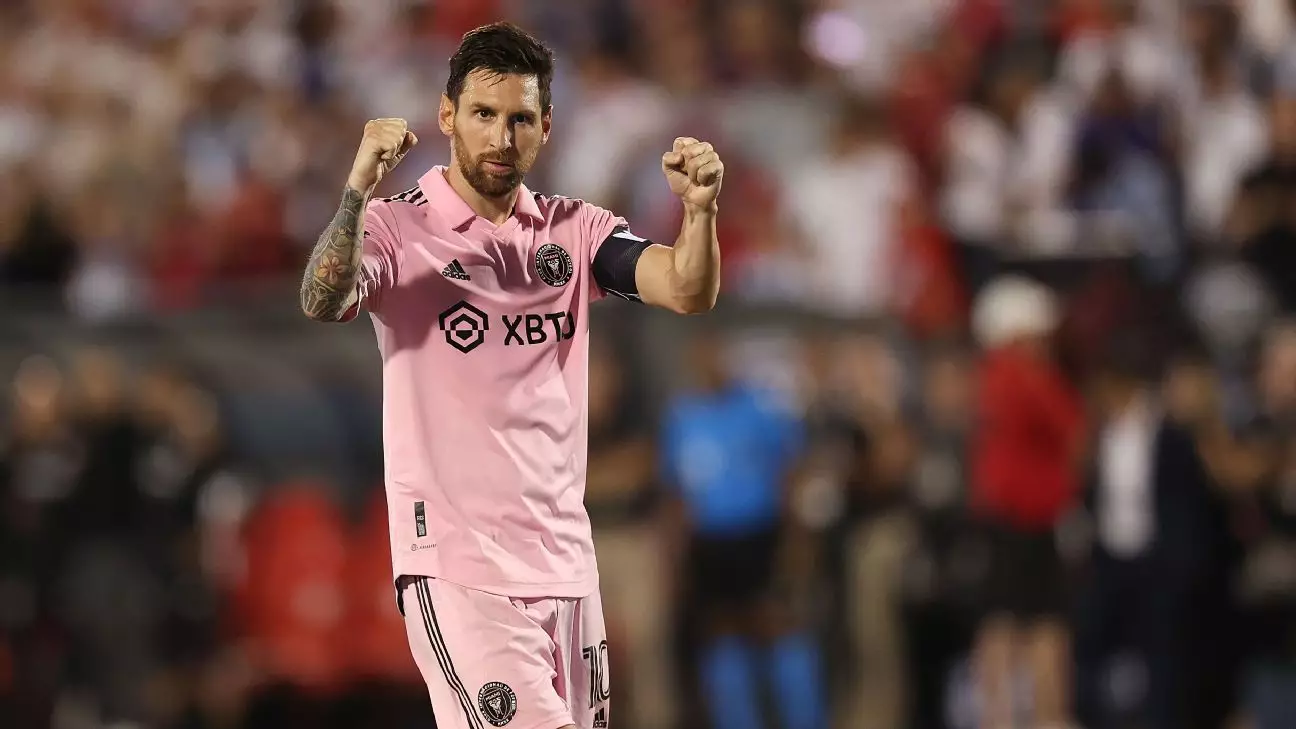Lionel Messi’s arrival in Major League Soccer (MLS) in the summer of 2023 sent shockwaves through the league, reshaping not just the competitive landscape but also altering the way teams interact with fans and the broader public. No longer was attending a regular season match merely about sports; it quickly morphed into an event characterized by community festivities, heightened media activity, and the promise of an unforgettable experience. The anticipation surrounding Messi’s matches ignited what many are calling “Messi mania,” propelling several teams to take unique and unprecedented measures in preparation for his presence on the field. As the 2025 season looms, the implications of Messi’s influence remain a prominent topic of discussion among fans, executives, and players alike.
The Vancouver Whitecaps made headlines just days before their scheduled game against Inter Miami by announcing that Lionel Messi, Luis Suárez, and Sergio Busquets would not be traveling for the match. This statement, made by Whitecaps CEO Axel Schuster, was a rarity in MLS, showcasing how seriously teams now consider the significance of Messi’s participation. While some criticized the proactive communication, others appreciated the transparency, showcasing the divide in fan expectations. Nevertheless, the Whitecaps moved forward with their pre-game events, including block parties and tailgates, while even slashing food prices by 50% as a gesture toward disappointed fans.
Similar sentiments echoed elsewhere in the league. Both the Chicago Fire and Sporting Kansas City crafted inventive strategies to handle the immense interest generated when facing Inter Miami. The Chicago Fire’s unexpected compensation offers for ticket buyers not only demonstrated a commitment to fan satisfaction but also highlighted the tension of anticipation that surrounds Messi’s matches. Teams are no longer merely competing with their rivals on the field; they are actively engaged in managing expectations, carefully considering how to provide meaningful experiences for their supporters.
The crowds drawn to matches featuring Messi tell a story of their own. Attendance records have shattered across the league, with teams like Atlanta United and Charlotte FC hosting games that attracted upwards of 70,000 fans. The increased turnouts suggest a renewed interest in MLS that correlates strongly with Messi’s presence—not just as a player, but as a worldwide icon. For many, the opportunity to witness Messi play live creates a once-in-a-lifetime experience, driving not only ticket sales but an entire buzz around the fixtures.
In response, MLS teams have implemented specialized marketing strategies to maximize this surge in interest. Utilizing social media and targeted campaigns, fans are now bombarded with promotional efforts that emphasize the allure of watching Messi. In fact, some clubs have switched to larger venues to accommodate the swelling audiences, leading to inflated ticket prices that reflect the heightened demand. As teams strive to capitalize on the Messi effect, affordability often takes a back seat, which some fans perceive as a double-edged sword.
Messi’s impact transcends mere numbers or revenue; it taps into the very essence of soccer culture in the United States. For decades, MLS struggled to establish itself in the competitive North American sports landscape, but the arrival of a player of Messi’s stature has ignited a fire of enthusiasm around the league. Comments from players like Julian Gressel highlight that the attention surrounding Inter Miami is not simply fanfare; it influences crowd dynamics significantly, with many games showcasing a pronounced “pro-Miami” atmosphere even when the opposing team might typically enjoy local support.
What’s particularly striking is how Messi’s presence has helped revive the U.S. Open Cup, a tournament that has often struggled for attention. The anticipation when Inter Miami is involved adds an electric atmosphere to matches that might otherwise be relegated to relative obscurity. Competition does not just exist on the pitch; the emotional stakes rise, forming deeper connections between fans and players, and highlighting the broader cultural resonance of soccer in America today.
As Messi approaches what many speculate could be his final season in MLS, the pressure builds on clubs and fans alike. The league has registered a marked increase in overall attendance, yet the question remains: how can this momentum be sustained once Messi’s tenure comes to an end? Will the league revert to its previous levels of engagement, or have Messi’s contributions fundamentally altered the trajectory of soccer in America?
With MLS Commissioner Don Garber acknowledging the “unimaginable” effects of Messi’s arrival, it’s clear that the stakes have risen. Teams are now battling to create an enduring appeal that extends beyond one player’s influence. As the landscape of U.S. soccer continues to evolve, the challenge will be ensuring that the surge in interest sparked by Messi translates into long-lasting engagement and support for the league as a whole.
Lionel Messi has indeed transformed MLS in ways that extend beyond the confines of the field. His presence unites fans, expands marketability, and establishes a lasting legacy that will be examined long after he departs. In using innovative strategies and embracing fan engagement, MLS holds the potential to grow into a sustained force within American sports, propelled by the waves of excitement generated by this extraordinary athlete.

